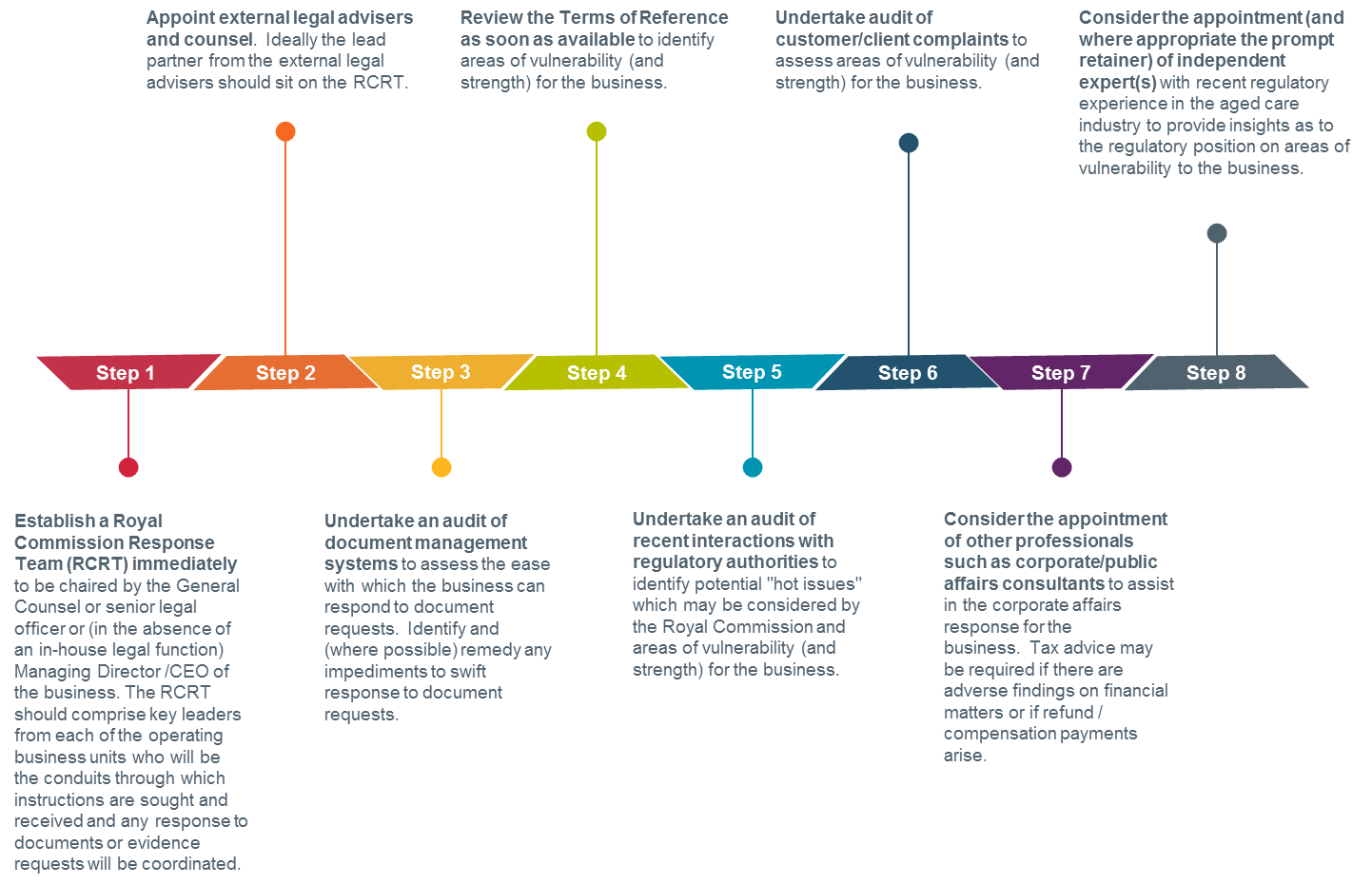Royal Commission into Aged Care Quality and Safety
On 16 September 2018, Prime Minister Scott Morrison announced a Royal Commission into the Aged Care Sector to examine the quality of care provided to both senior Australians and young Australians with disabilities in residential and home aged care.
The establishment of the Royal Commission is a reversal of the position of Aged Care Minister Ken Wyatt, who had previously considered a Royal Commission unnecessary, and a 'waste of money'. However, in comments today Scott Morison has indicated the Royal Commission is necessary to fix an Aged Care system considered "broken", and reflect a commitment to "lifting and policing the standards" in the industry.
The Royal Commission comes at a difficult time for many providers, who are in the process of assessing and implementing the new Aged Care Quality Standards (one of the largest changes to the industry in a decade), as well as industry pressure following a number of high profile incidents within the Aged Care sector.
Government expenditure in the Aged Care sector has recently reached a record AUD18.6 billion, although many providers consider that, with Australia's aging population, the industry is significantly underfunded and unprepared for growing need for both home and residential care
What Does This Mean for the Aged Care Sector?
The Aged Care sector is not unfamiliar with a Federal inquiry process - since 2009 there have been 10 Federal inquiries into Aged Care leading to various and widespread recommendations for the sector (the largest of which being the implementation of the Living Longer, Living Better reforms in 2013).
However, depending on the scope of the Commission, providers should be prepared for potentially significant ramifications - the current Royal Commission into Misconduct in the Banking, Superannuation and Financial Services Industry is a very real and current example of how far-reaching, wide and public Royal Commissions are.
Whilst the Terms of Reference for the Royal Commission into the Aged Care sector have not been announced, it is expect that the Commission will have a significant impact upon Aged Care providers and will no doubt lead to reforms to the industry.
As members of the public are typically invited to make public submissions, Aged Care providers will need to consider their positions relatively quickly and in light of the Terms of Reference (including at the time of submissions to be called for the Terms of Reference).
In addition, providers should be aware that a number of announced reforms for the sector are still in the process of being legislated and/or implemented (including the new Aged Care Quality Standards and the findings of the Aged Care Workforce Taskforce). It is not yet clear whether reforms to the Aged Care sector which have already been announced will be delayed by the Royal Commission process.
What you Need to Consider
Below are some steps you need to consider in preparation of the Royal Commission.

Background
What is a Royal Commission?
A Royal Commission is an independent inquiry into issues of paramount public importance. The role of a Royal Commission is to undertake an investigation on a particular issue in Australian life and report its findings to the Government. While it is commissioned by, and reports to, the Government, a Royal Commission is an independent entity whose functions are carried out in full public view.
What will the Royal Commission Investigate?
While the Terms of Reference have yet to be determined, it is expected that the Royal Commission will examine:
- The quality of care provided to older Australians and the extent of substandard care
- The challenge of providing care to Australians with disabilities living in residential aged care, particularly younger people with disabilities
- The challenge of supporting the increasing number of Australians suffering dementia and addressing their care needs as they age
- The future challenges and opportunities for delivering aged care services in the context of changing demographics, including remote, rural and regional Australia
- Any other matters that the Royal Commission considers.
The Terms of Reference are expected to be determined following consultation with both the Aged Care sector and the broader community. Those terms may change during the Commission.
Key industry commentators have highlighted in particular the need to consider instances of elder abuse, under staffing, and investment for the long term sustainability of Australia's Aged Care sector.
What Powers Does the Royal Commission Have?
As Royal Commissions are primarily concerned with uncovering the truth, they have broad powers to compel witnesses to give evidence. These include significant coercive powers to:
- Summon a person to:
a. Give evidence
b. Provide documents or other things - Require a witness to give evidence under oath
- Require a person to provide information or a statement in writing.
There are no limits on how many times a person can be called before a Royal Commission to give evidence.
What if the Evidence is Self-Incriminating?
Generally, a person will still be required to provide evidence even if would incriminate them, unless they have been charged with an offence and the incriminating evidence relates to that offence.
What if a Document is Legally Privileged?
If a document to be provided to the Royal Commission is subject to legal professional privilege, it must be produced unless a court has previously found, or a claim is made to the Commission, that the document is subject to legal professional privilege.
What Offences are There?
There are a number of offences for failing to comply with an order made by the Royal Commission. These include:
- Refusing to give evidence;
- Refusing to sworn or make an affirmation;
- Failing to produce a document determined not be covered by legal professional privilege;
- Providing false or misleading evidence; and
- Interfering with evidence or witnesses.
Penalties apply which include terms of imprisonment.
What can a Royal Commission Find?
A Royal Commission can make a range of recommendations, including those for legislative and policy reforms. It can make adverse findings of fact and refer a person or organisation to a regulatory or prosecuting body. Adverse findings also result in adverse media and reputational damage.
K&L Gates has a team of lawyers experienced in Royal Commission and Inquiry matters who can assist Aged Care providers with any questions or concerns they have in relation to the impending Royal Commission.
This publication/newsletter is for informational purposes and does not contain or convey legal advice. The information herein should not be used or relied upon in regard to any particular facts or circumstances without first consulting a lawyer. Any views expressed herein are those of the author(s) and not necessarily those of the law firm's clients.






